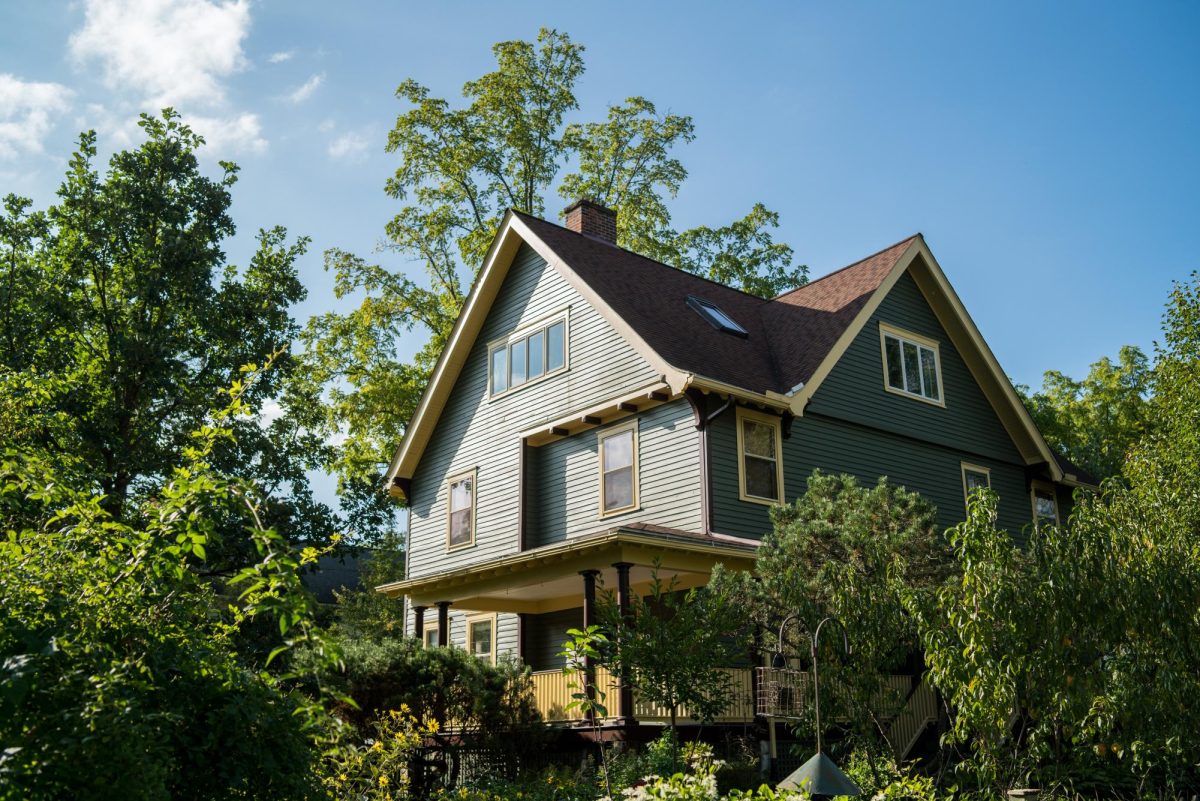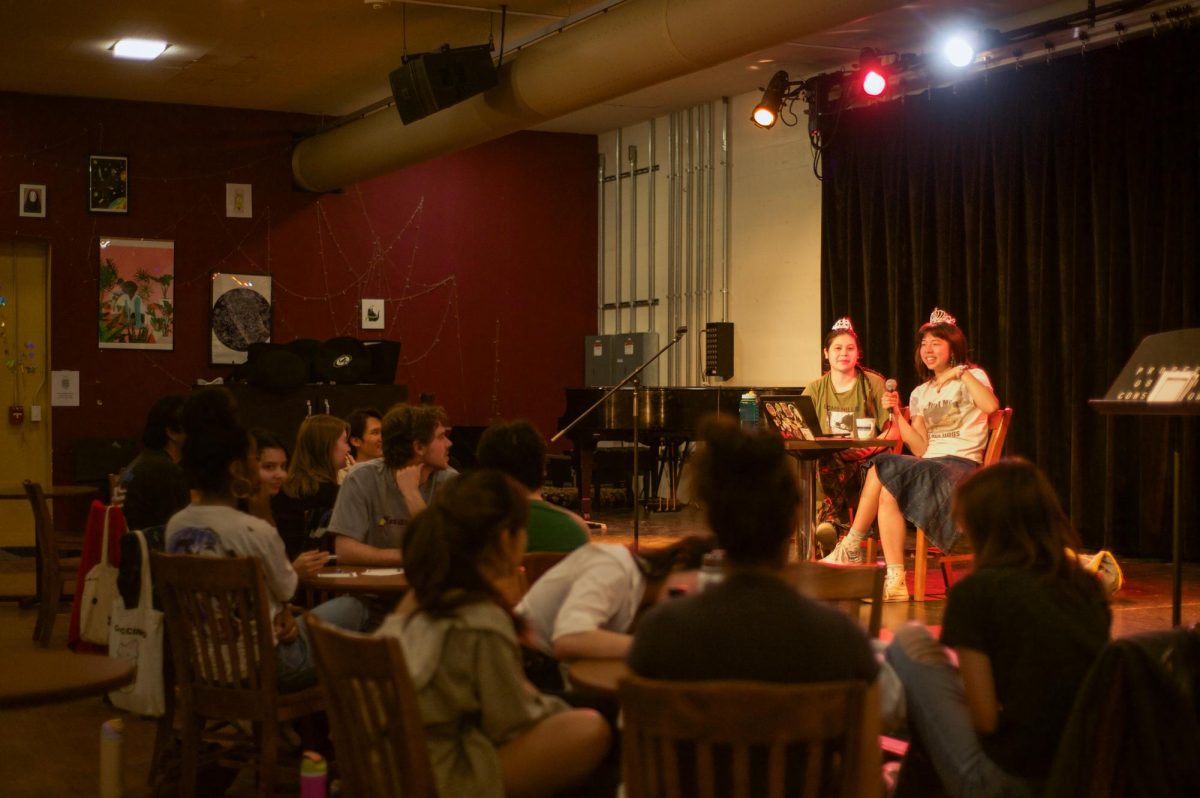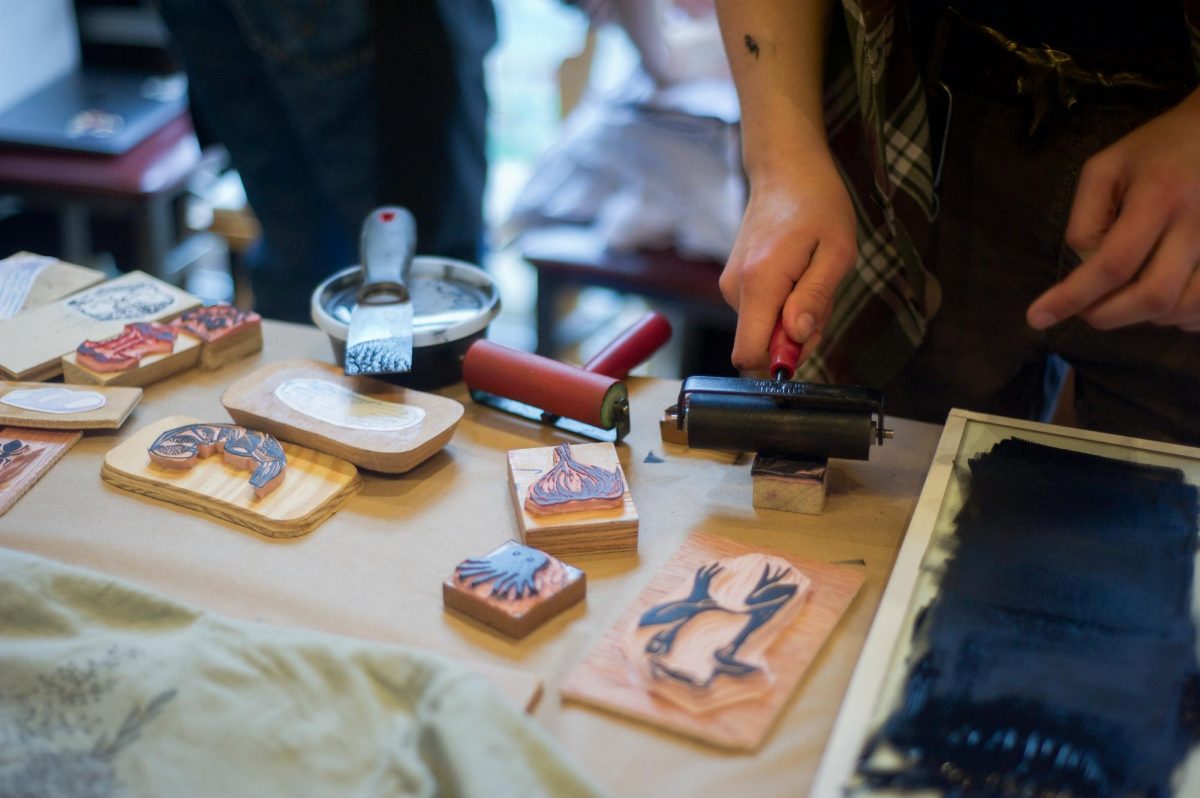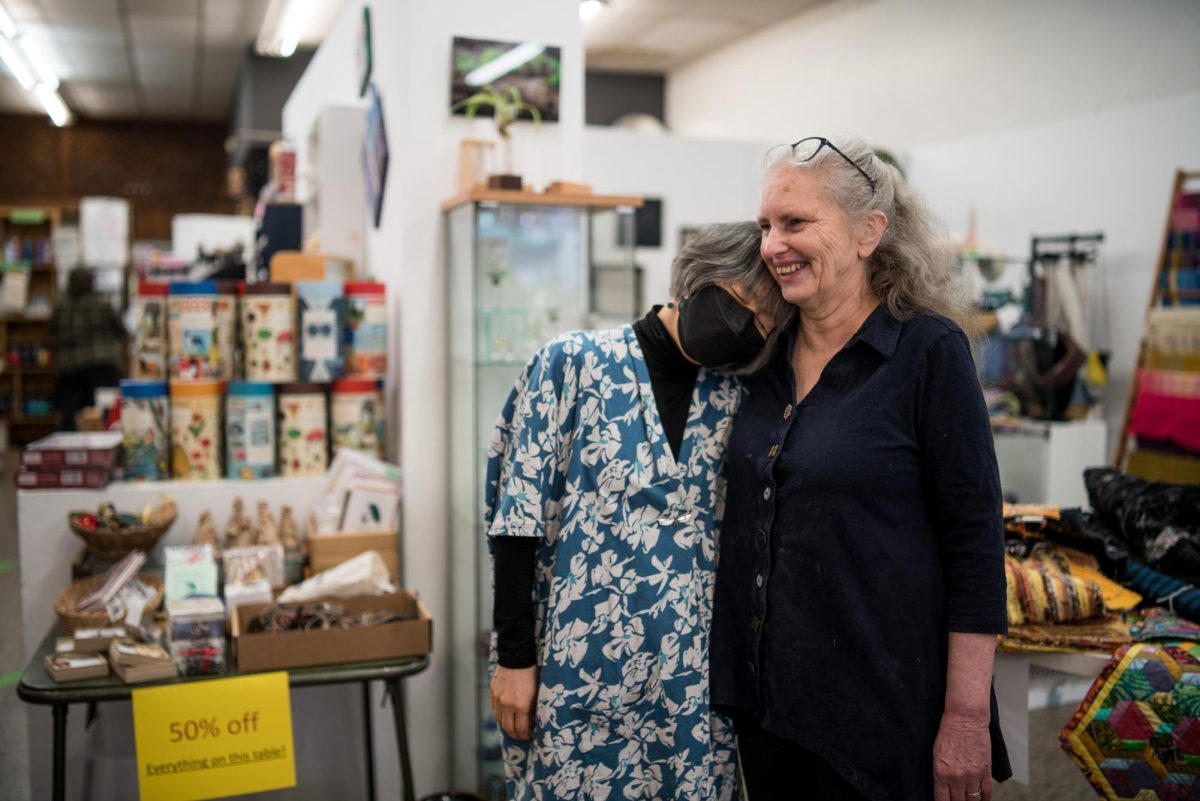Jacques Rutzky, Oberlin Buddhist Fellowship’s longtime mentor and guide, will leave the group at the end of September as he and his wife relocate to Evanston, IL. OBF has long offered students a space for regular meditation and student-led discussions around Buddhist ideas.
Rutzky hosts weekly Sunday sits in the attic of his Elm Street home, where we met to chat. The gorgeous house felt empty, the halls lined with boxes. Even the zafu and mat arranged for me to sit opposite Jacques were to be sold in the final Sunday sit. Jacques sat in lotus with his iPhone on the floor in front of him, displaying a faux-analog clock. He spoke softly and frequently paused, as though waiting for the thought to materialize before speaking.
“It’s not easy to leave the students,” Rutzky said. “The OBF students ask wonderful, challenging questions, and in most places [other students] tend to be in awe of a meditation teacher and don’t get personal. Here, they don’t mind being personal about the questions they’re asking. I love being challenged; I love when they say, ‘Wait a minute. What about this situation?’”
Rutzky also leads a Conservatory meditation group, originally created to improve students’ ability to improvise on their instrument.
“They come already disciplined,” Rutzky said, describing the Conservatory meditators. “They’ve been practicing to play an instrument since they were four, so they show up on time. And they ask difficult questions. ‘How is this going to affect my music?’ That’s a very challenging question, and it’s different for each person. I try my best not to give pat answers when students ask questions. I will often sit and pause for a minute or two, and I let them know: I’m waiting for a thought to come up. They often find that kind of humorous, that I have to wait for a thought to come up, because their heads are always filled with thoughts.”
As Rutzky prepares to move, the student leadership council of OBF is seeking a new teacher and a new space for meditation. For College fourth-year and OBF president Ethan Nissenson, the fellowship is a place to find a community of like-minded, mindful people.
“I had a meditation practice that was pretty underdeveloped leading up to [my second] year, and I heard people would go to [Rutzky’s] house to meditate,” Nissenson said. “I had kind of a loose understanding of Buddhist practice and meditation practice, but just the thought of meditating with other people interested me. I ended up doing the Winter Term with him, and going to a couple sits and meditations at his house on Sunday, and was pretty immediately sold on the community aspect of it. There was an atmosphere that felt warm and loving, and I was with people that were pointed in the same direction on the compass as me, so to speak. And so I stuck around; my relationship with Jacques deepened. He’s leaving now, but he’s a really good friend of mine. I’ve known him for two and a half years now, and I love him to death.”
Along with meetings in the attic of Rutzky’s home, OBF has also held student-led sessions in the Wilder Hall meditation rooms. However, Rutzky says the option of meditating off campus changed the environment of the sits for the better.
“For a couple of years we sat in the basement of Shansi [House], and then we were sort of shuttled over to Lewis House, where no one was given a key, so we often ended up calling Campus Security to let us in, and it felt less substantive, and that… didn’t help the group to feel more cohesive,” Rutzky said. “And then we bought this house and turned the attic into a meditation hall. Students always talked about really enjoying meditating here and not in an industrial building.”
Rutzky seems irreplaceable, though Nissenson says they don’t know what the future holds.
“Jacques has been around teaching students, but he’s been meditating 50, 60 years, and got his blessing to teach from a Thai Buddhist meditation master, so it’s this lineage, this continuity,” Nissenson said. “As much as I like the idea of a grass-roots effort, I personally have my own fears about spiritual commodification and blind-leading-the-blind. ”
Rutzky has also historically led a Winter Term retreat for daily meditation, which also has an uncertain future in his absence. Director of the Office of Religious and Spiritual Life David Dorsey says that the ORSL systems are structured to follow and support the needs of students.
“I have met with some of the student leaders; they’ll be the ones who choose the next teacher, or teachers, and the next location, but we already had conversations to ensure there’s no gap between Jacques’ departure and their practice,” Dorsey said. “They get to decide that, and then we come behind and support.”
Rutzky came to Oberlin over a decade ago, in part to heal from a brain condition.
“I was recovering from viral encephalitis, which is an inflammation of the brain,” he said. “I caught it when I was traveling in Paris and almost died. I wasn’t recovering as well as the doctors thought I should, and so they said, ‘You need a quiet place to heal, and we’ll see what happens.’ Oberlin was the quiet place.”
During his time at Oberlin in the early ’70s, Rutzky has been credited as the originator of the co-op pizza night tradition. Since his time at the College, Rutzky says the town of Oberlin has stayed with him even after he left.
“I always had this perfect image of Oberlin in my mind — whether it’s perfect or not is a different story,” Rutzky said. “But in my mind, it was a quiet place. And we were living in a Japanese farmhouse built for us by Zen priests in the San Francisco Bay Area, and left that to come here. Both my wife and I had private practice therapy sessions, [and] she was also training as a Jungian therapist.”
After moving to Oberlin, Rutzky opened a woodworking studio near Slow Train Cafe, where he says a student introduced him to a group of Oberlin meditators for the first time.
Rutzky will join his wife, Dyane Sherwood, who works as a Jungian therapist in the Chicago area. He says he has not made set plans to continue teaching meditation after his move; instead, he will allow new opportunities to find him. While Rutzky moves on from over a decade of service to students in Oberlin, OBF hopes to preserve the community fostered in that time.
“Really baseline is the atmosphere and the space that I walked into, of people coming together, more or less united under a direction of insight and mindfulness,” Nissenson said. “That’s what I want to preserve, as Ethan. As an organization, it’s just a turbulent time — I don’t know what it could look like. And that’s scary, but then again, I never do.”
Rutzky will host two more Sunday sits, on Sept. 16 and 23, before he departs from Oberlin.










